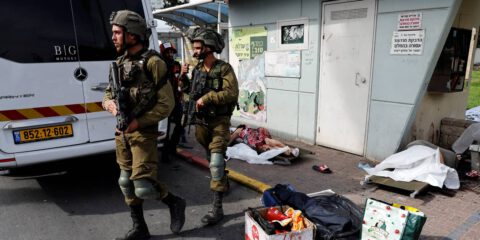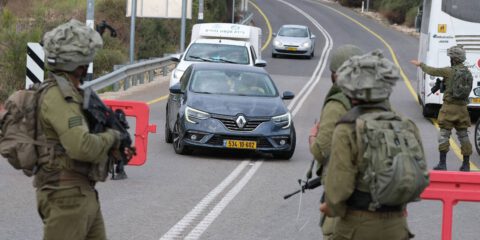If the International Criminal Court of Justice conducted a fair investigation into the ongoing conflict, it would see that Hamas terrorists are committing double war crimes daily.
Even as Hamas continues its salvo of rockets into Israel, the Chief Prosecutor of the International Criminal Court Fatou Bensouda announced on Twitter that her office will monitor the sides’ conduct for possible war crimes being committed in the flare-up.
At first sight, this should be great news for Israel. Under the Rome Statute, which laid the foundation for the court’s jurisdiction, Hamas and the Palestinian Islamic Jihad are committing double war crimes daily: directing attacks against Israeli civilians not involved in hostilities and using civilians as human shields.
Unfortunately, it is not the Hamas terrorists the ICC wants to investigate. The start date of another probe Bensouda launched – into Israeli conduct in Judea and Samaria and the Gaza Strip – begins with the day after three Israeli teenagers were kidnapped and murdered by terrorists in 2014. It is clear they are not interested in investigating Hamas, but Israel alone.
The same is true of the current Israel-Gaza conflict. The only thing that leaves room for hope is Bensouda’s successor, British lawyer Karim Khan, who might reexamine this march of folly – which has undermined the ICC’s own authority and turned it into a political circus.
Bensouda’s latest investigation into Israel is not only an insult to the Israel Defense Forces, which uses phone calls and roof-knock munitions to evacuate Gazans ahead of airstrikes, but also a message to the terrorists that the ICC is on their side. They can now go ahead and double down on their aggression.
It also harms the Palestinians themselves, a nation whose terrorists claim to “protect” its values and interests. The ICC’s encouragement will only promote the cycle of violence.
Lastly, the ICC’s decision to define Palestinian territory based on the June 4, 1967 lines will only harm the Palestinian people, which is not the case for their leaders, who benefit from the conflict. It sets unrealistic expectations about what the permanent peace accord would look like, essentially blocking the prospects of any agreement, and therefore, further perpetuating the conflict.
Published in Israel Hayom 21.05.2021
JISS Policy Papers are published through the generosity of the Greg Rosshandler Family.
Photo: Big Stock









 - בניית אתרים
- בניית אתרים